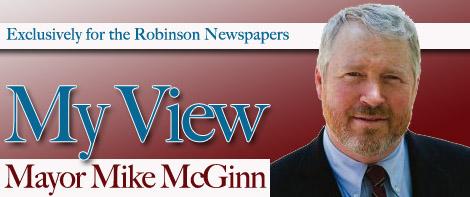Widening the Circle of Prosperity
Sat, 10/15/2011
By Mayor Mike McGinn
We are living in a time of deep inequality. Statistics show the United States is experiencing the worst income inequality since 1928. The top 1% control 34% of the nation’s wealth. And it hits unevenly. Communities of color and those who were already experiencing low incomes, even during the boom, are struggling the most.
Unemployment is at 9.1% - that’s lower than it was at the peak of the recession, but still too high. Those who still have jobs aren’t necessarily better off. The New York Times recently published an interesting statistic. The recession technically ended in June 2009. And we have been slowly adding jobs. But since the end of the recession two years ago, household incomes have actually declined by 6.7%. That’s at the same time as bankers are taking home record profits and huge bonuses. Even in what is supposed to be a recovery, we’re still seeing inequality widen.
There’s a lot of anger and frustration out there. And for good reason. Look at what is happening here in Washington State. The state legislature is facing another $2 billion deficit. They’re looking at closing that gap by making cuts to schools and to human services – and that’s on top of the big cuts they’ve already made. That won’t reverse the inequality we face. That’s just going to make it worse.
The public sees a growing disparity. The public is worried about how they’re going to make ends meet. And they don’t see politicians responding.
Nearly a month ago, on September 17, a few dozen protestors responded to a call to “Occupy Wall Street” to protest the growing inequality in our society. As the movement began to grow, others echoed the call and began to occupy prominent public places in major cities across America.
It is not surprising that Occupy movements have started in urban places. Cities are where you can most clearly see the stark differences between those that have security and prosperity and those that don't. Many of those who are hurt most by our nation’s economic policies live in cities. They gather here to express themselves.
This is a moment that has been a long time in coming. When I talk to mayors across the country, we share the public’s anger at our unequal economy. We are upset that we have people sleeping out on the street and families going hungry but face state and federal budget cuts that make it more difficult for us to do something about it.
Our sympathies for the protestors and their cause must also be balanced with our sworn obligation to uphold the law. Here in Seattle we have been working hard to protect public safety and the public interest in park spaces, while ensuring that individuals can express their constitutional rights to free speech and assembly. Mayors in other cities have faced the same challenge.
But this movement is about more than tents and park rules. It’s about the need to confront inequality and to start figuring out what we as a community and a country are going to do about it. We can continue the policies that favor the rich at the expense of the poor. Or we can come together and build the kind of jobs and make the kind of investments that build a prosperity that is shared and sustainable.
Seattle is a city that does not turn away from injustice. We have a long history of social and economic justice movements that have helped to widen the circle of prosperity. But it is clear that in this moment of inequality and persistent economic weakness, there is much more that has to be done. Seattle can and should lead the way forward by not only naming our problem – but by determining how we will solve it.


